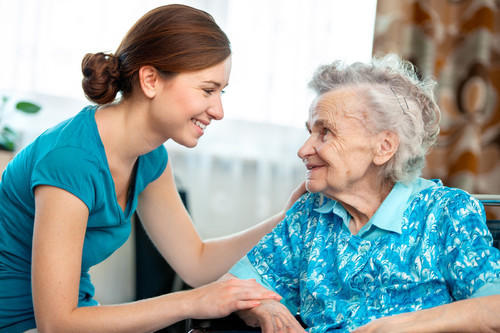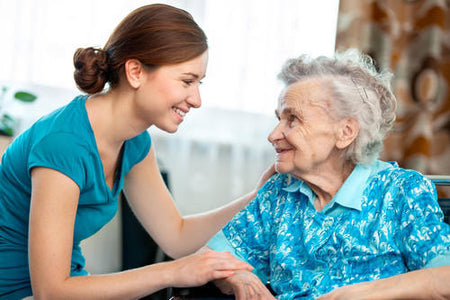
As we go through life, we learn to embrace all life has to offer while having the ability to recover and move on from hardships. Some people are expected to be stronger when it comes to tough situations. Law enforcement, soldiers, and doctors are just a few of the professions which involve an increased mental toughness required for success. One profession which isn’t as publicly known for being challenging mentally is a caretaker. In the past year, more than forty-three million caregivers have provided some sort of aid to children and adults throughout the United States (caregiver.org). Caregivers can be paid or non-paid, and assist in helping individuals live daily life. Unpaid caretakers are known as informal caretakers and typically are family or friends taking care of somebody they care about personally. These types of caregivers have an especially harder time dealing with grief than paid caretakers because they know the person needing care on a more personal level. Alzheimer’s is an especially grief-causing disease and quite an expensive one as well. If you or somebody you know looks after a person with Alzheimer’s, you know how stressful it can be. Those affected with this awful disease as well as dementia often have personality changes, and can soon forget who you are. This can cause an immense amount of stress and guilt on the caretaker. This stress is quite common, and you should know that you are not alone.
The first step to take if you begin to feel overwhelmed with grief is to take a step back and realize this is normal. Do not panic. It is common to experience denial as the individual you are taking care of begins to decline in their health. We tend to be optimistic when somebody we care about begins to experience bad health. Anger, sadness, and confusion are typically the next steps people face. If you feel any of this while taking care of somebody, you need to develop a support system. Call someone you are close to, a friend or family member, to help give you support. Typically, when we get too stressed out, our bodies essential functions can shut down. If you feel too stresses, it is important to take a break. Step away from caretaking until you feel mentally prepared for what lies ahead. We all need a break from time to time, and caretaking can be especially tough when dealing with an individual who has Alzheimer’s. Another issues Americans tend to have is being timid when it comes to seeking help due to a negative stigma. There are plenty of support groups and hotlines to help deal with stress and to give you the support you need to get back to your normal self. Sometimes, caretaking can become too much. Some patients need more help than others and may need professional assistance. It is also quite acceptable to place the individual you are looking after into a nursing home. Another aspect to caretaking that is important to understand is the time requirements over time. As patients age, they typically require much more care. Don’t feel guilty if you can’t take care of the patient any longer.
[The Partnership for Solutions. (2004). Chronic Conditions: Making the Case for Ongoing Care.]
The average time requirement for caretaking somebody over the age of seventy-five is about thirty-five hours a week. Not many people have that kind of time to look after somebody, and this is why there are formal paid caretakers to aid with these types of patients. The time commitment can be a lot to deal with but if you plan for the future and expect that the amount of care increases with time can help you better predict plans for the future. Knowing that your patient will not live forever is also something that you should realize. Preparing for your patient’s death is the last and hardest step in the caretaking process. Give yourself plenty of time to deal with this. You need to realize you are not alone, and you should not go through this process alone. Grief is normal, but with time, you will return back to your normal self and your life will resume as it does and had always done before.

















Comments